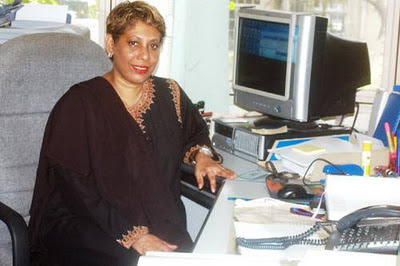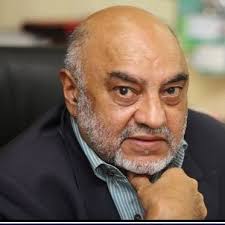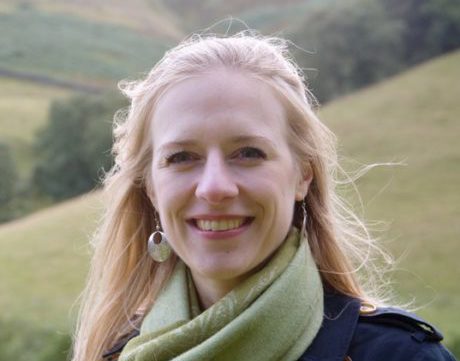
Dave Inder Comar
Dave Inder Comar is a business and human rights lawyer and the executive director of Just Atonement Inc. He is catalyzing the effort to have state Attorneys General break the power of fossil fuel corporations once and for all. He is a graduate of Stanford University and the NYU School of Law. In 2017, Comar and his work were profiled in The Guardian by the American author Dave Eggers, hailed as a reimagined Atticus Finch.

Shaista Shameem
Shaista Shameem is the Dean of the School of Law at the University of Fiji. She is an expert on international law as it involves climate change issues. In 2005 UN Secretary General, Kofi Annan, appointed Dr Shameem to a panel of international human rights experts to review the prosecution of serious violations of human rights in Timor-L’este (then East Timor) in 1999. In 2006 she began developing an interest in climate change litigation and helped to draw up a Pacific-wide policy brief on the right to environment.

Gurdial Singh Nijar
Gurdial Singh Nijar is the President of HAKAM, the Malaysian Human Rights Society, he is also the Founder-Director of the National Centre of Excellence for Biodiversity Law, Senior Research Fellow at the South Centre, Geneva; Legal Expert for the Food and Agriculture Organization of the United Nations, Rome; and former member of the Compliance Committee, UN Cartagena Protocol on Biosafety. Nijar was the spokesperson for the Like Minded Developing Countries (LMDC) that negotiated and led to the adoption of the Paris Agreement.

Herve Raimana Lallemant-Moe
Herve Raimana Lallemant-Moe has a PhD in law and is a teacher of the University of French Polynesia (Tahiti) and ex-Associate Counsellor of the High Council of French Polynesia. Member of the Governance and Insular Development laboratory (GDI) of the University of French Polynesia and the International Law Centre at the University of Lyon. His research focuses on international environmental law, environmental law and the legal effects of climate change in Oceania.

Margaretha Wewerinke-Singh
Margaretha Wewerinke-Singh focuses on the role of law in addressing sustainable development challenges. Her recent book, State Responsibility, Climate Change and Human Rights (Hart Publishing) explains when and where State action related to climate change may amount to a violation of human rights. From 2015 to 2018, Margaretha was a (Senior) Lecturer in Environmental Law at the University of the South Pacific (USP) School of Law in Port Vila, Vanuatu.

Marie Wavre
Marie Wavre is an Associate Political Affairs Officer with the United Nations Department of Political and Peacebuilding Affairs in Gaborone, Botswana. Prior to this, Marie practiced immigration law in New York and worked in LGBT rights in India. At Columbia University, she taught courses on International Human Rights Law, Gender Issues and Macroeconomics. Marie is a member of the New York bar and holds a master’s in public international law from Université Paris Assas, an LL.M. in international law and justice from Fordham University School of Law, and an MPA in development and gender policy from Columbia University School of International and Public Affairs.

Kaitlyn Box
Kaitlyn Box is a third year J.D. candidate at Penn State Law. She is an editor of Penn State Law’s Journal of Law and Academic Affairs, and participates in the Center for Immigrants’ Rights Clinic. She holds a B.A. with honors in International Political Studies and French from Drury University in Springfield, Missouri. She plans to devote her law practice to human rights, environmental, and immigration advocacy.

Keely Boom
Dr Keely Boom is Executive Officer of the Climate Justice Programme, a Research Associate at the Institute for Sustainable Futures (University of Technology, Sydney) and a practising lawyer. Her PhD thesis examined exposure to legal risk for climate change damage under the international climate change regime and UN Law of the Sea Convention. She has managed a number of projects, including the Carbon Majors Project.

Notre affaire à tous
Notre affaire à tous (i.e. our common concern) is a French NGO founded in 2015 to engage in environmental & climate justice with legal means. Notre affaire à tous is today well known in France and internationally for having initiated two major climate cases: the so-called "l’Affaire du Siècle" (i.e. the "case of the century" against the French government which is supported by more than 2 million persons) and the case against Total, the French big oil company.
Notre affaire à tous is also on the frontline of the ecocide advocacy work.








